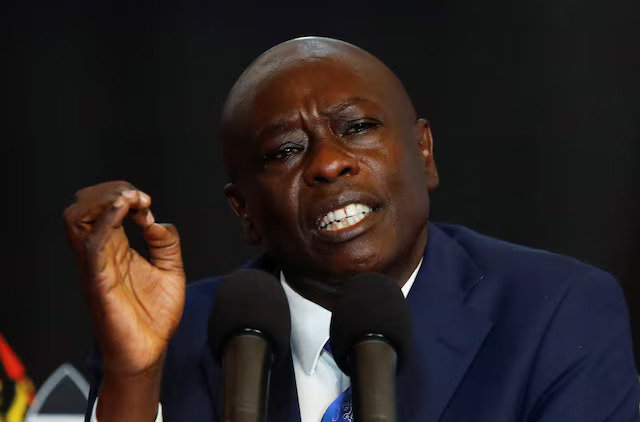Kenya’s parliament was scheduled to vote on Tuesday regarding the impeachment of Deputy President Rigathi Gachagua, highlighting a growing rift within the governing party.
Lawmakers have accused the 59-year-old Gachagua, who serves under President William Ruto, of corruption, undermining the government, and engaging in ethnically divisive politics, among other charges.
At a press conference on Monday, Gachagua dismissed these allegations as “outrageous” and “sheer propaganda,” claiming they are part of a scheme to oust him from office.
A businessman from Kenya’s largest ethnic group, the Kikuyu, Gachagua has survived previous corruption scandals to become Ruto’s running mate in the closely contested August 2022 election. However, in recent weeks, he has expressed feelings of being sidelined by Ruto and has faced accusations of supporting youth-led anti-government protests that erupted in June.
Political tensions have escalated since these sometimes-violent demonstrations began in response to unpopular tax hikes, revealing divisions between Gachagua and Ruto. Last month, several MPs allied with Gachagua were summoned by police over allegations of funding the protests. Although no formal charges have been filed against Gachagua and no judicial inquiry has been initiated, lawmakers have outlined 11 grounds for impeachment. These include accusations that he has accumulated assets worth 5.2 billion shillings ($40 million) since the last election, despite an annual salary of only $93,000.
Included among his listed assets is the renowned Treetops Hotel, where Britain’s then-Princess Elizabeth stayed when she became queen. Gachagua maintains that his wealth is the result of legitimate business ventures and an inheritance from his late brother.
He has warned that his removal could incite discontent among his supporters.
The impeachment process was initiated by Kenyan lawmakers on October 1, with 291 members of parliament supporting the motion, surpassing the 117 votes required to proceed. For the motion to pass on Tuesday, it needs backing from two-thirds of the lower house, the National Assembly, before moving to the Senate.
If impeached, Gachagua would become the first deputy president in Kenya to be removed from office in this manner since the possibility was introduced in the revised 2010 constitution.



